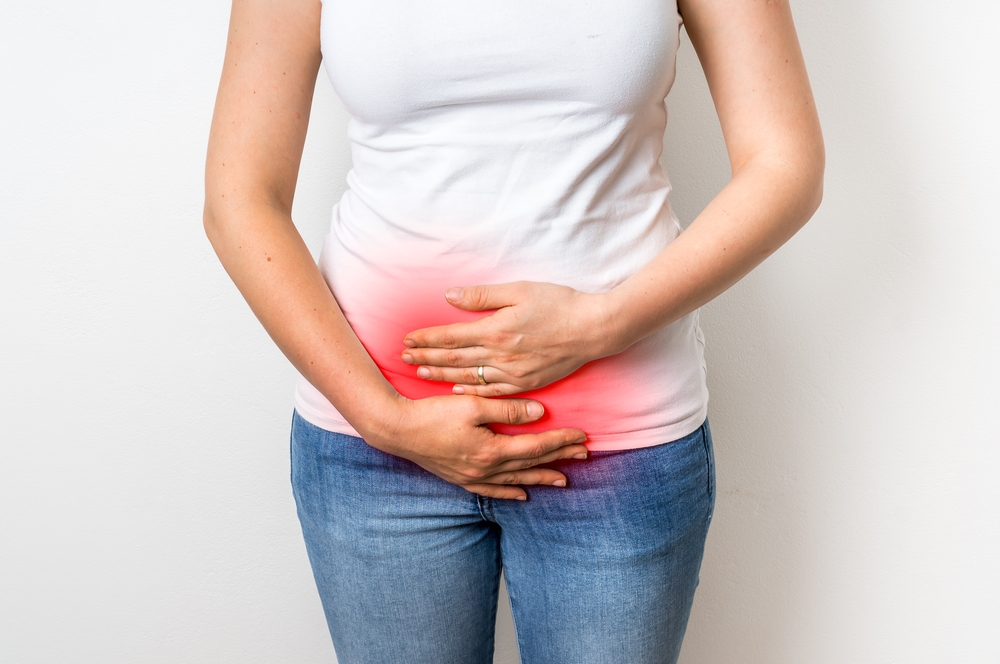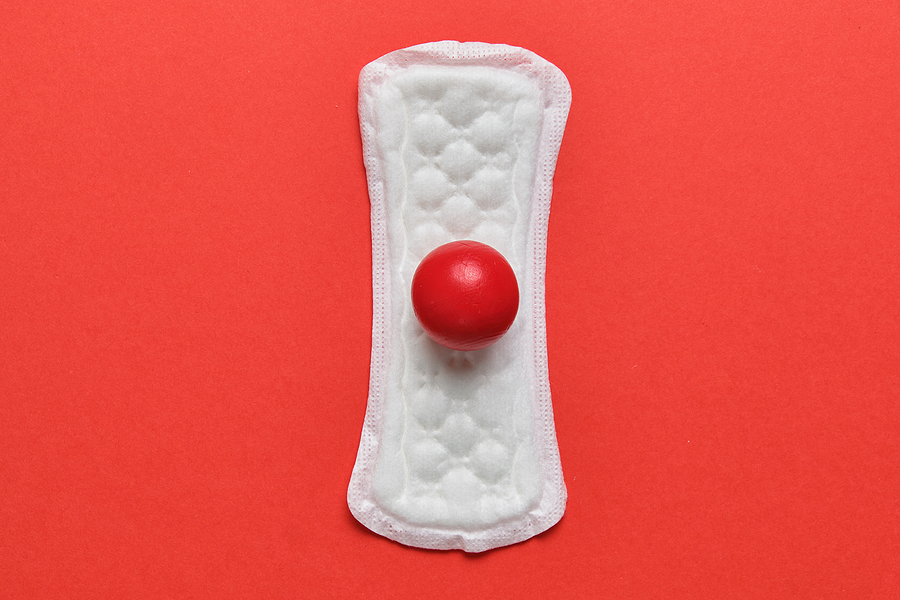Updated 11/08/2020
Answers to Your Questions About Irregular Periods
Janet was very worried when she came to see me for the first time. She’d always had a regular menstrual cycle, she said, but recently things had shifted. She’d missed one period, then had two come very close together.
What was going on?
I reassured her that most of the time, irregular periods are benign. Missed periods, periods that come too frequently, spotting, or bouts of heavy clotting and bleeding are usually caused by an underlying hormonal imbalance that is easily treated.
Many women have missed a period at one point or another, and if we know pregnancy isn’t the cause, we wonder what might be wrong.
No two women have the same cycle, and no cycle is “the right one.” All women’s bodies are unique and some menstruate like clockwork, while others report never having had a regular cycle.
There’s one thing I know for sure, however — shifts in hormonal balance will alter whatever pattern a woman has experienced in the past.
Such shifts are especially common in perimenopause, but can happen at any time in a woman’s life, often because of stress, anxiety or other lifestyle factors.
Today, I’ll discuss what an irregular period is and answer some common questions about why they happen and what you can do about it.
What is an irregular period?
In my practice, I answer questions about irregular periods all the time. Like Janet, women are concerned when their period suddenly changes with no easy explanation.
A textbook period happens every 24-29 days, but in truth there is a wide range that is considered “regular.” Cycles between 23-35 days are very common.
A woman may get her period only one to four times a year. Or she might have periods that occur 2-3 times in a month and involve spotting or extremely heavy flow. Alternatively, she may have heavy episodes of bleeding every 2-3 months. Irregular periods are simply a change in what is regular for you.
If a woman has missed a period or two over the course of a year, I’m generally not concerned. But more frequent variations may indicate the beginning of perimenopause or a disruption of the natural chain of hormonal events that controls menstruation.
A wide variety of factors can be responsible for irregular periods. Some of the most common are:
- Significant weight gain or loss
- Overexercise
- Poor nutrition (or a diet too high in carbohydrates)
- Smoking
- Drug use
- Caffeine
- Excessive alcohol use (interfering with how the liver metabolizes estrogen and progesterone)
- Eating disorders
- Increased stress
- Polycystic ovarian syndrome/Estrogen dominance
- Uterine abnormalities (fibroids/cysts/polyps/endometriosis)
- Hormonal imbalances related to perimenopause
- Medications
- Chemotherapy
- Recent childbirth, miscarriage, or D&C
- Breastfeeding
The ways a woman can experience irregularity, and the myriad reasons for the variability can be very confusing to sort out. Because of this, women often fear they’re facing a serious health issue.
What I love about my practice is that I have time to sit with women, answer all their questions, and give them some peace of mind. Some of the most common questions I hear are answered below.
Why does being stressed cause irregular periods?
The first thing I ask about when a woman tells me she’s having irregular periods (after the possibility of pregnancy, of course) is stress. So many women are surprised to hear that excess stress can cause disruption to their menstrual cycle.
When we are stressed, regardless of the source (physical danger, personal relationships, work, environment) our adrenal glands are designed to secrete the hormone cortisol (you can read more about this in my Adrenal Health section).
Cortisol has a direct impact on the sex hormones estrogen, progesterone, and DHEA. Eating disorders, dieting, drug use, and reliance on stimulants like caffeine and alcohol are also interpreted by the body as types of stress.
Poor nutrition seems to physically change the proteins in the brain so they can no longer send the proper signals for normal ovulation.
Am I in menopause if I have irregular periods?
No. Irregular periods are generally an indication of hormonal imbalance, but that isn’t necessarily related to menopause.
Strictly speaking, women aren’t considered menopausal until they have gone for one year without a menstrual period.
If you have not had a menstrual period for a full year and then experience bleeding, this is different from irregular periods. This is called post-menopausal bleeding.
By the way, it is a myth that a woman goes into menopause because her body runs out of eggs.
If this were true, then women who experienced menarche (the first period in a woman’s life) earlier would enter menopause earlier.
In fact, the opposite is true — early menarche is associated with late menopause. In the same vein, women who have had more pregnancies and thereby fewer periods, would have menopause later, and that doesn’t happen, either.
If you are experiencing increasing irregularity, you may be suffering from hormonal imbalance or entering perimenopause, and should be evaluated by a healthcare practitioner.
Am I in Perimenopause if I Have Irregular Periods?
Not necessarily, but irregular periods are one of the most common signs that you have are in perimenopause. That’s why it’s best to check in with a healthcare practitioner.
Women entering perimenopause often have irregular periods due to an imbalance of progesterone that upsets their cycle.
Because progesterone regulates the amount and length of bleeding, periods can last longer and be accompanied by very heavy bleeding (also called menorrhagia or hypermenorrhagia). However, shorter or spottier periods can also indicate perimenopause.
What Does it Mean if I Miss a Period or Two?
The most common type of irregular period we see at the clinic is anovulation, or a cycle in which a woman does not ovulate (i.e., does not release an egg).
This is frequently the cause of a missed period (an anovulatory cycle) and is considered normal if it occurs only once or twice a year. Clotting is also considered normal if it is cyclic.
Sporadic periods of poor diet, high stress, emotional trauma, illness, or strenuous physical exercise are the usual suspects behind occasional anovulatory cycles. Sometimes something as simple as a family holiday or a week with the in-laws will wreak havoc on a menstrual cycle.
Monthly periods are quite susceptible to dips and spikes in our emotions and our health. For the most part, once our lives return to normal, so do our periods.
On the other hand, a woman will sometimes skip her period for a few months and then start a heavy period that lasts for days or even weeks. This can be a sign that a woman is entering perimenopause.
More and more I am seeing patients of all ages come into my practice who have irregular periods due to polycystic ovarian syndrome (PCOS), an easily recognizable and treatable diagnosis that often occurs with insulin resistance.
In this condition, the ovaries produce a quantity of follicles that generate high levels of estrogen but never release an egg. The high estrogens stimulate the uterine lining to thicken to a point where it must slough off.
Women with PCOS are not having what are considered “real” menstrual periods because they do not regularly ovulate.
For more information, I recommend you read my articles on Insulin Resistance, where you will find other helpful thoughts about this topic.
What if I’m just spotting or not getting a period at all?
We’ve all heard stories from friends who have suddenly lost a lot of weight or begun a strenuous exercise regimen, then stopped getting their period.
Anorexic women or those who exercise two to three hours a day can find their menstrual cycles diminish or stop due to a decrease in body fat. In these women, estrogen levels have dropped too low so they are not ovulating.
This condition is called stress-type hypothalamic amenorrhea, and it occurs when poor nutrition and stress alter the brain proteins and hormones. The brain can’t trigger the right hormones for follicle development, which make the necessary estrogens.
Women with this irregularity tend to be at higher risk for bone loss (osteoporosis) and should have their bone density evaluated (read the many informative articles on this topic in my Bone Health section.
Why does my period come twice a month?
Sometimes, the concern isn’t infrequent periods, but having more than one period in the span of one month. This is a harder question to answer, since what causes this to occur is not clear.
Still, stress and lifestyle seem once again to play a major role. Ingesting medication or other substances that disrupt the luteal phase may be a factor, too.
I bleed really heavily when I get my period. What does this mean?
Low progesterone, PCOS, or other hormonal imbalances may be the culprit. If a woman has two or more successive months of heavy bleeding, it’s a good idea to see a healthcare provider for a check-up. Any kind of heavy bleeding can contribute to anemia.
When I see women who are experiencing heavy bleeding, I may suggest a synthetic progestin such as Aygestin or Provera, or a Progesterone such as Prometrium or a compounded progesterone, along with diet and exercise modifications to bring the bleeding back under control.
Acupuncture can also balance the body and provide relief. If a patient has anemia, we try to stop the heavy menstrual flow and prescribe an iron supplement.
For more information about heavy periods (known as menorrhagia) read my article here.
What should I do if I’m having irregular periods?
Any time something about your health changes significantly, an important first step is to talk to a healthcare practitioner. If you are experiencing any of the symptoms discussed above, it’s time to make an appointment. That appointment should include the following:
- A complete physical, including evaluations of thyroid function (Click here for many articles about this in my Thyroid Health section) and blood pressure. Be sure that testing includes a complete blood count (CBC) test, as that is important for the diagnosis of anemia.
- A pelvic exam, which is critical to rule out any uterine abnormality, a cervical polyp or fibroid, or a uterine infection. These are less common causes but should be considered. An ultrasound is often required to evaluate the uterus, the ovaries and the fallopian tubes. Ultrasound of the uterus is useful and painless — you may already be familiar with this technique from pregnancy. If infection is a concern, antibiotics will be prescribed.
- If you are trying to become pregnant, consult with a fertility specialist or a qualified OB/GYN practitioner for further testing.
What is the treatment for irregular periods?
Most of the time, simply decreasing stress, improving nutrition and adding adequate nutritional supplements can naturally restore regular menstrual cycles.
These steps alone give the body a much needed boost and will support the natural hormonal balance and monthly cycles we are meant to enjoy… and appreciate!
For most patients, I see big improvements when they commit to the following steps:
- Healthy dietary modifications, especially decreased intake of refined carbohydrates. Please see my Nutrition section for numerous articles on these topics.
- Supplementing nutritional gaps with a medical-grade multivitamin, including calcium, magnesium, and a high-quality fish oil supplement.
- Moderate exercise (this may require increasing or decreasing your current level of exercise).
- Stress relief through exercise or other relaxation techniques.
For the majority of women who make these changes, a normal menstrual cycle returns without a hitch.
If the issue stems from an anovulatory or perimenopausal condition, a doctor may prescribe birth control pills to normalize the cycle. This is often successful.
Keep in mind however, that birth control pills are powerful hormones and often cause side effects. I recommend you start first with these more natural steps, including bioidentical progesterone cream, and only resort to birth control pills if your symptoms persist.
If you do decide to take birth control pills for your irregular periods, you should still make sure to support your body in all the above-listed ways to balance out the impact of introducing synthetic hormones into your body.
No need for panic over irregular periods
I know it can be disconcerting to experience changes in your menstrual cycle, especially if you haven’t reached the typical age of perimenopause. The good news is that usually, the solutions are simple and easy to implement.
With attention to healthy lifestyle and nutrition choices, you’ll be back on track in no time!







